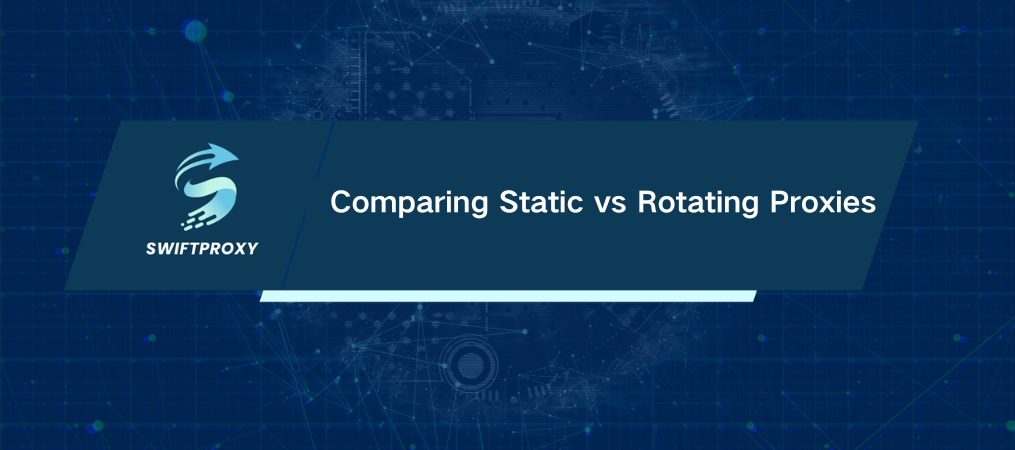Comparing Static vs Rotating Proxies

Imagine this scenario. You're diving deep into web scraping when suddenly you're blocked without any warning or second chances. The culprit could be the proxy you're using, which might not be the right fit for your needs. Choosing between static and rotating proxies can make the difference between seamless data collection and hitting endless roadblocks. Let's break it down.
Understanding What a Proxy Server Is
Think of a proxy server as your personal bouncer to the internet. It stands between you and the websites you visit, shielding your identity and controlling how you connect. When you browse through a proxy, your IP address becomes masked. Instead, the site only sees the proxy's IP, not yours. This provides a layer of privacy, a layer of control, and sometimes, a way around website restrictions.
About Static Proxies
Static proxies are like a steady handshake. They use a single IP address that doesn't change, no matter how many requests you send. This stability makes static proxies ideal for long-term, trust-based connections. For example, if you're managing social media accounts, static proxies are your friend. They provide a consistent IP address, which helps build trust with platforms that expect stable, predictable traffic.
However, there's a catch: when making repeated requests from the same IP, servers begin to take notice. For scraping tasks that require high volume or quick succession, static proxies can quickly raise red flags, potentially leading to blocks or bans.
Despite this, static proxies remain ideal for managing social media accounts, as they provide a stable IP address that minimizes the risk of account bans. They also facilitate secure online transactions and are advantageous for SEO monitoring, ensuring consistent tracking of search rankings and competitor analysis.
About Rotating Proxies
Rotating proxies are the shapeshifters of the proxy world. With every new connection (or sometimes after a set interval), they change IPs. This rotating IP pool offers a fresh identity, making each request appear to come from a different location. For web scraping, especially on a large scale, rotating proxies are a powerhouse. They minimize the chances of detection and blocks, allowing you to gather data without tripping server alarms.
However, rotating proxies do have their quirks. The dynamic nature that helps protect them from blocks can sometimes lead to session instability. If your task requires a stable connection, such as logging into an account, rotating proxies may not be the best choice.
On the other hand, rotating proxies excel in scenarios like large-scale web scraping, allowing for extensive data collection without detection. By utilizing different IP addresses, they facilitate automated data extraction while minimizing the risk of being blocked. This makes them particularly valuable for accessing sites that frequently impose restrictions on repeated requests.
Comparison: Static vs. Rotating Proxies
Consistent IP: Static proxies stick to one IP, offering reliability for consistent tasks. Rotating proxies switch IPs, keeping each request under the radar.
Stability: Static proxies excel in long, steady connections, while rotating proxies may interrupt longer sessions due to changing IPs.
Privacy Protection: If you need high anonymity, rotating proxies have the upper hand. Each request looks new, making detection harder. Static proxies can be flagged more easily due to a single, unchanging IP.
Block Threat: Static proxies face a higher block risk with repeated requests. Rotating proxies spread requests across various IPs, reducing detection.
Final Thoughts
There's no one-size-fits-all answer. For steady, consistent activities like managing an account or processing secure transactions, a static proxy is a suitable choice. For high-volume scraping where anonymity is crucial, rotating proxies provide the necessary agility.
Whether you opt for static or rotating proxies, the right choice depends on your specific goals. The success of your task and access to the data you need rely on this decision.

















































